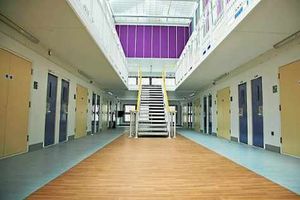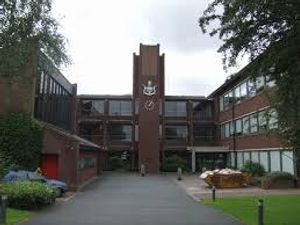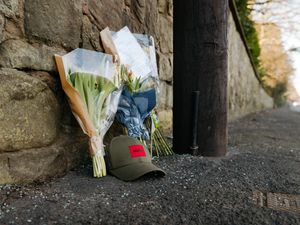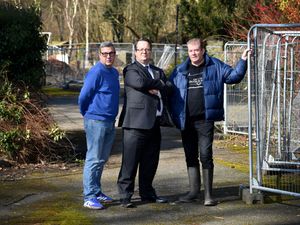Through keyhole of Midlands' £200m new superprison
[gallery] With its bright and spacious corridors and rooms with a desk, these pictures could easily be mistaken for a university halls of residence.

With its bright and spacious corridors and rooms with a desk, these pictures could easily be mistaken for a university halls of residence.
But while inmates at South Staffordshire's new £200 million HMP Oakwood prison are enjoying the most luxurious jail in the country, there are no luxuries about the rules of incarceration.
Click on the image to the right for more photos
Prisoners are locked up as they are in any other jail and they will also be made to work as close to a 40-hour week as possible.
What they do have, however, is the facilities to help give them a better chance of rehabilitation than other prisons. The clean but basic cells are fitted with individual showers and the majority with a telephone that will allow inmates to contact family and friends.
Facilities also include six five-a-side sports pitches and one full-sized all weather pitch.
There is a huge gym containing treadmills, cycles, rowing machines and cross trainers, as well as a four-court sports hall that has basketball, volleyball, tennis, badminton and football facilities.
And inmates will be encouraged to grow their own vegetables in allotments while prison bosses are also hoping to get celebrity gardeners in to help boost horticulture courses.
Ten workshops at the jail will help employ, educate and train prisoners so they have the skills to succeed when they are released.
Director Steve Holland, a former police officer, said: "If a prisoner can leave jail for a job, home and settled family life, they are 50 per cent less likely to re-offend.
"It's not about making it nice for prisoners but there's lots of things we can do to help them, like mentoring.
"We need to build trust with prisoners. If a member of staff tells a prisoner he will do something, he must do it to gain their trust and respect."
The move to install telephones in cells has been controversial, but Mr Holland explained that calls are paid for by inmates and will be monitored.
And he also added that it would help reduce the risk of phones being smuggled in, as well as the potential for conflict between prisoners queuing to use the phone.





